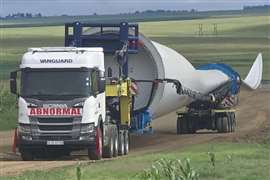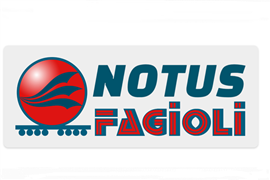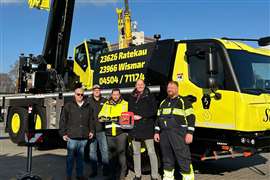What to Look for in Crane Certification
01 June 2025
SPONSORED CONTENT
Not every crane certification reflects the realities of the job. Choosing the right process is key to supporting safe, capable operations.
Finding skilled crane operators has never been tougher. With workforce shortages tightening the labor pool, when you do find qualified talent, you need to make sure they’re truly ready for the demands of the job. The margin for error in crane operations is narrow, and productivity expectations continue to rise. Certification has become the baseline, but not all programs are built to reflect the complexities and demands of today’s projects, crews or regulatory demands.
To ensure your operators are prepared for real-world challenges with the skills and judgment to perform safely and competently, as well as to certify them in a way that works for your business, it’s important to evaluate the following factors:
Accreditation That Matters
To comply with OSHA, crane operators in construction must be certified through an accredited program. ANAB (ANSI) accreditation ensures that certification meets rigorous standards and remains current with evolving ASME and OSHA requirements.
Testing That Reflects the Whole Job
Choose programs that test what operators actually do, including safe crane setup and shutdown. Many certifications skip some of these job-essential tasks, therefore not reflecting the true rigor of the position nor providing a comprehensive assessment of the candidate’s abilities.
Compliance Regarding Training and Testing
For ANAB certification, there must be a clear policy and process for ensuring that by using a certifying body’s training candidates will not get an unfair advantage that others’ may not receive. When training materials and certification aren’t separated, credibility is compromised. Look for providers that make a point to respect that line and build both sides with intention and separation.
Flexibility Without Compromise
Certification ought to seamlessly be built into your regular operations with minimal business disruption. Rather than scheduling a costly visit to a testing facility, consider a provider that allows you to test at your own site using your own equipment or with a portable crane setup.
Transparent, Reliable Verification
You need to be able to verify certifications quickly and confidently. Delays or uncertainty in confirming a candidate’s certification status can slow projects, increase risk and create compliance gaps. Reliable online systems that provide instant access to up-to-date certification records eliminate those worries.
When safety, compliance and day-to-day operations are on the line, you need a certification process that is designed with the realities of the job site in mind. NCCER is the premier one-stop stop for certifications across all craft professions that reflect the business needs of contractors. With ANAB-accredited programs, flexible on-site testing options and a full range of certifications for crane operators, riggers and signal persons, NCCER supports employers in building skilled, confident teams. Learn more about our certification options at nccer.org/crane-rigger-signal-person-certifications
STAY CONNECTED


Receive the information you need when you need it through our world-leading magazines, newsletters and daily briefings.
CONNECT WITH THE TEAM











